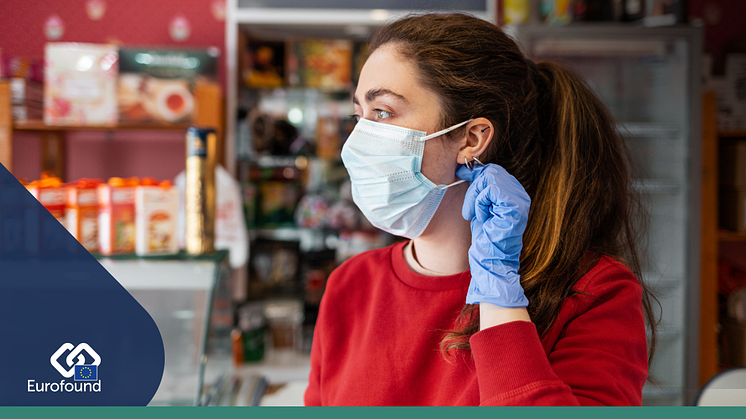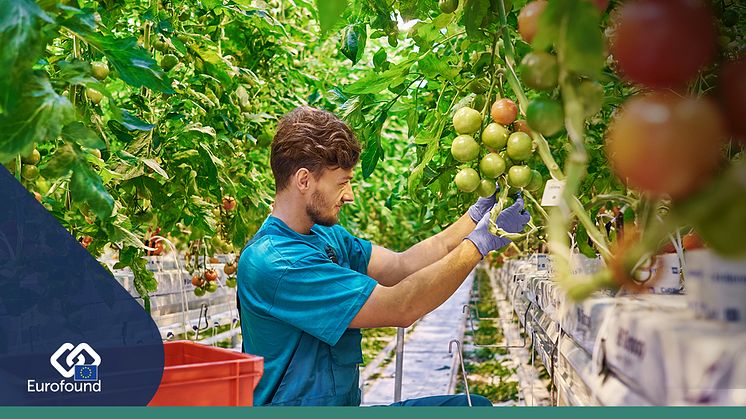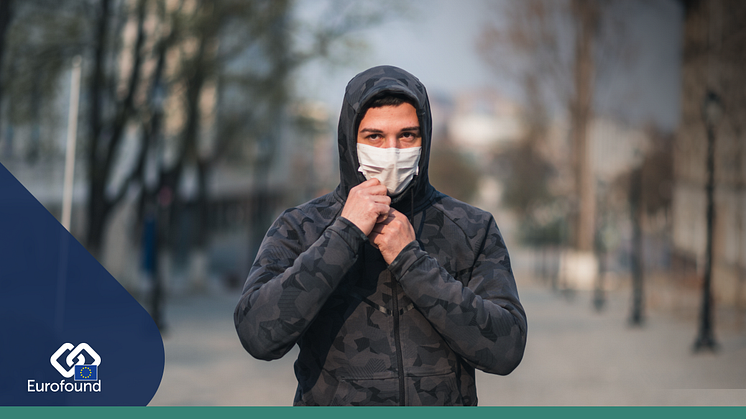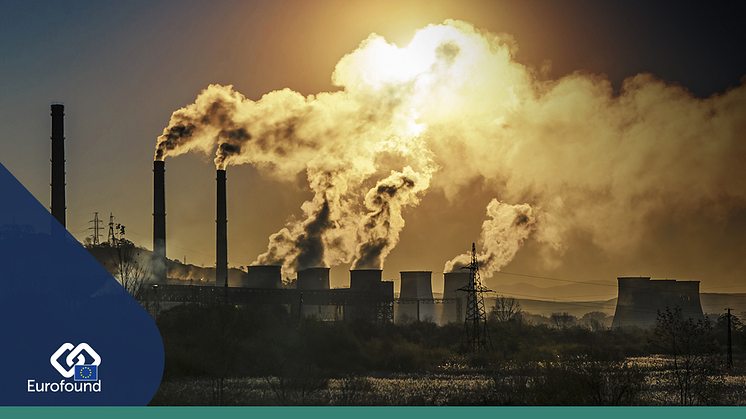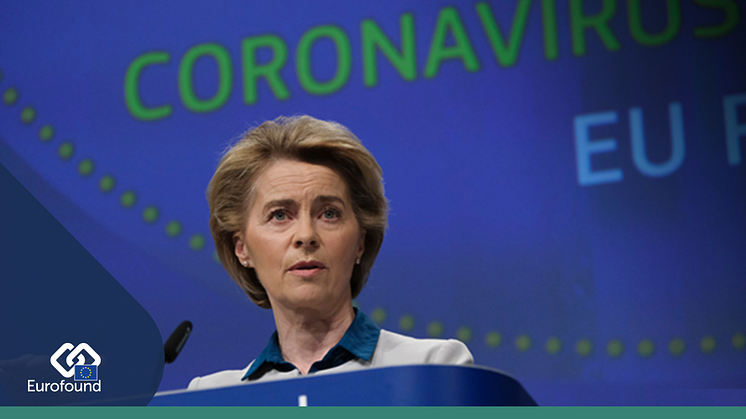
Blog post -
The COVID-19 recovery needs a green, social, digitally skilled Europe
Article by Anna Gallinat
COVID-19 has left many people jobless, furloughed and financially vulnerable, often feeling isolated and pessimistic. It has become clear that the status quo is no longer sustainable or desirable. The political and economic response needs to take these changed attitudes into consideration. European Commission President Ursula von der Leyen’s address to the European Parliament on Wednesday will therefore focus on three pivotal areas: economic recovery, the digital age, and the European Green Deal.
Economic recovery and response to COVID-19
A Reinforced Youth Guarantee and Fair Minimum Wages, two EU initiatives underway well before COVID-19, have taken on increased significance. Young people have been one of the groups suffering most from the crisis in terms of job loss and mental well-being. Eurofound’s Living, working and COVID-19 survey and broader labour market research showed that young people were more likely to work in sectors that have been worst affected by the economic shutdown (e.g. retail and hospitality) and are more often employed on temporary contracts – making them more prone to being laid off. Additionally, social distancing, school closures and lockdowns saw young people reporting lower levels of well-being than those aged 35 and over across many European countries. There is increasing talk of a ‘lockdown’ generation. Importantly however, young people have largely maintained trust in the EU and there is still time to respond to their needs and build a future around greater inter-generational equity. The Reinforced Youth Guarantee aims to strengthen and expand the existing programme and, among other aspects, step up the outreach to vulnerable young people across the EU in order to try and prevent history from repeating itself.
Another key policy priority from the Commission was a political instrument for fair minimum wages. Eurofound’s recent Annual review of minimum wages showed the value of minimum wages in the mix of policies to offset the fallout of the Coronavirus crisis. Apart from providing a necessary wage floor, they stabilise incomes and thus play an important larger economic role. The pandemic must not bring further social inequality, it presents an opportunity for more rapid progress towards a more equal and fair society, in which adequate and fair minimum wages play an important part.
Digital age
Earlier this year the Commission set out various initiatives falling under the priority ‘A Europe fit for the digital age’. The arrival of COVID-19 in Europe, the imposition of confinement measures, and the resulting impact on consumer behaviour have been a significant catalyst to digital trends – with implications for digital skills, telework, platform work, and even the process of convergence.
The expansion of the digital economy, and its importance for our everyday lives, will be an important aspect of the Revised Skills Agenda, which is linked to the European Digital Strategy and key to the European Commission’s mantra of ‘leaving no one behind’. The revised agenda’s Communication states ‘Now, more than ever, the EU needs a paradigm-shift on skills. One that delivers a bold skills agenda for jobs to drive the twin transitions and ensure recovery from the socio-economic impact of the COVID-19 pandemic’. Eurofound has done extensive research in the area of skills and training and provided input to several policy documents in the area. The upcoming European Company Survey Overview report will extend this body of research further, looking at workplace practices in relation to skills use, skills strategies, work organisation and digitalisation – all to unlock full employee and economic potential.
Platform work has also been recognised by the European Commission as one of the key policy areas to address. Although still relatively small in size, the platform economy appears unlimited in both its potential, as well as the unease it can provoke. The major Platform work summit, which was planned in the European Parliament, was postponed until further notice. However, the precariousness of some platform workers was an evident initial labour market impact of the COVID-19 crisis. Eurofound’s research has shown how the coronavirus pandemic highlights the sick pay void for platform workers, with platform workers in the transport sector (ride hailing and food delivery) most affected. Imminent findings and projections on scenarios for platform work in the digital age charts how the platform economy can develop in the future, and how Europe can capitalise on its inherent value – including the low entry barrier employment it provides.
Telework saw an unprecedented rise with the advent of COVID-19 , with 37% of Eurofound’s COVID-19 survey respondents in April indicating having started to telework. This is particularly striking given the very low rate of telework previously in a number of Member States – notably in southern and eastern Europe. The right to disconnect is now also a live political issue, and with significant differences in legislation between EU countries, the Commission will be important in establishing common rights and standards for all European workers.
European Green Deal
Finally, the European Green Deal, should ensure a transition to the first climate-neutral bloc in the world by 2050 – a transition which is fair and just for all and where ‘no one will be left behind’.
Within a few weeks of the imposed lockdowns and travel bans, people across Europe saw the ecological and environmental benefits of changes in human behaviour, for example in terms of air quality. However, protecting the environment does not necessarily mean economic slowdown. It can in fact go hand in hand with economic growth by developing sectors, services and practices that are less carbon-intensive. Last year, Eurofound published findings projecting that a successful transition towards a low-carbon economy, as defined by the Paris Climate Agreement, would result in a 1.1% growth in GDP and a 0.5% growth in employment in the EU by 2030. The coronavirus has not changed or eclipsed Europe’s environmental challenges, in fact Europe’s low-carbon transition makes more economic sense than ever.


